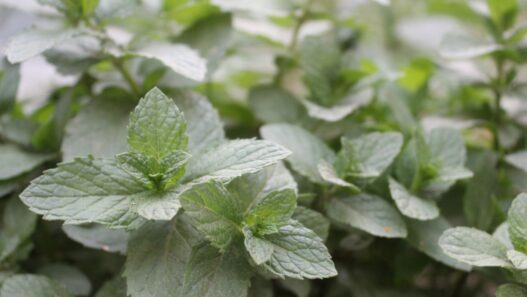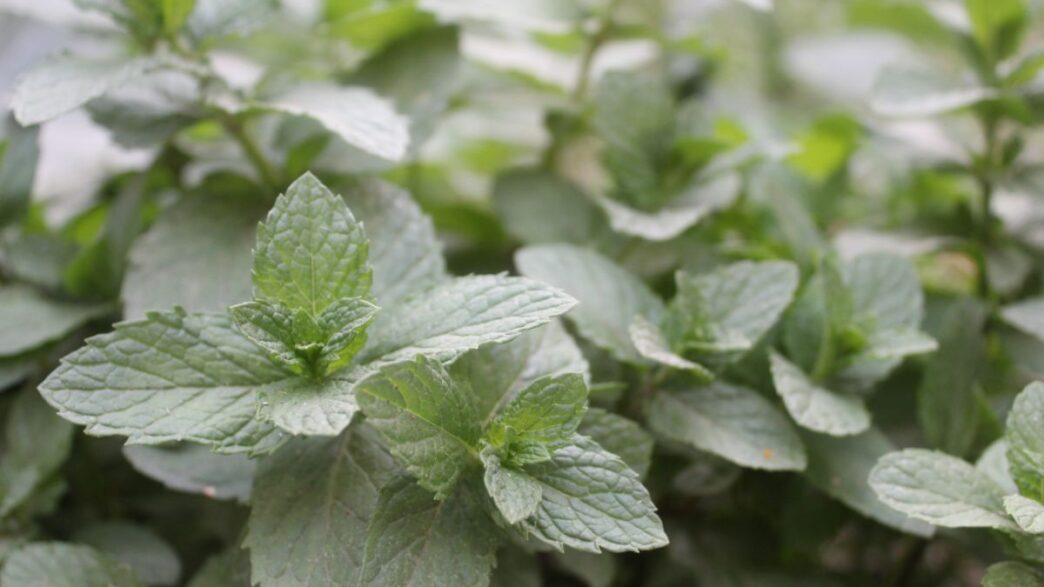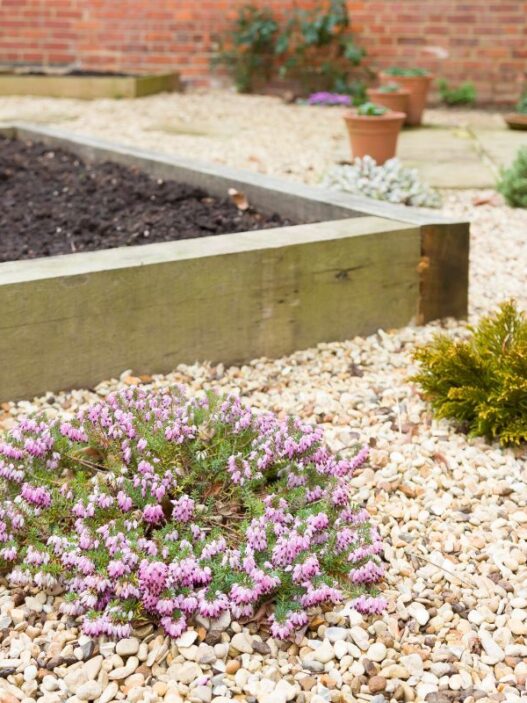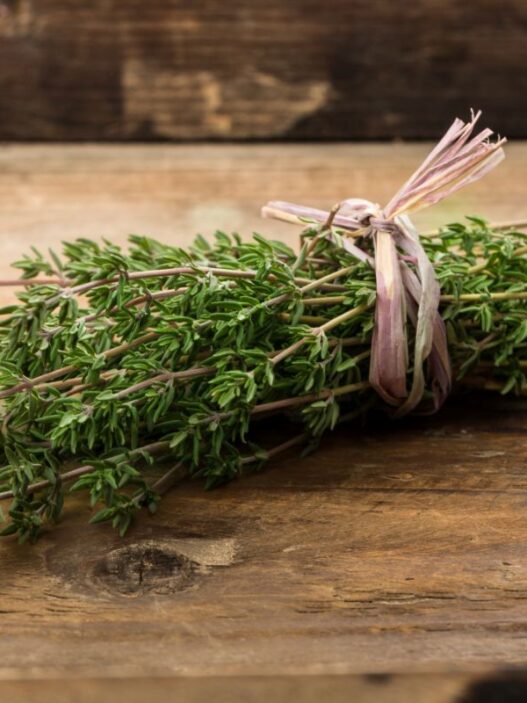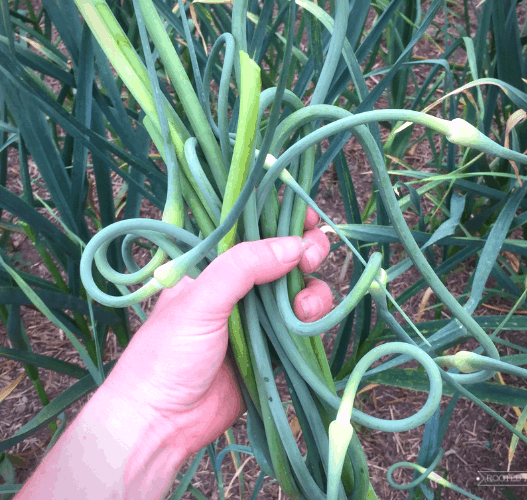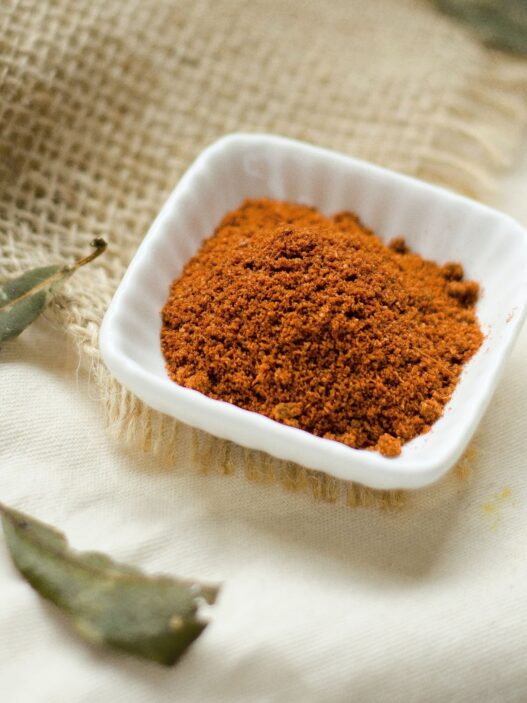Peppermint is best known as a culinary herb, a medicinal tool, and a fragrance-enhancing ingredient. But did you know that it functions as a safe and natural pest control agent, too?
That’s right, peppermint is highly effective in keeping pests and insects away from your home and garden!
In this guide, I’ll take a look at 9 bugs repelled by peppermint, which are:
- Spiders
- Mites and fleas
- Ants
- Cockroaches
- Moths and caterpillars
- Wasps
- Mosquitoes
- Bed bugs
- Beetles
I’ll also take a look at:
- How peppermint keeps these pesky critters at bay
- The best way to use it
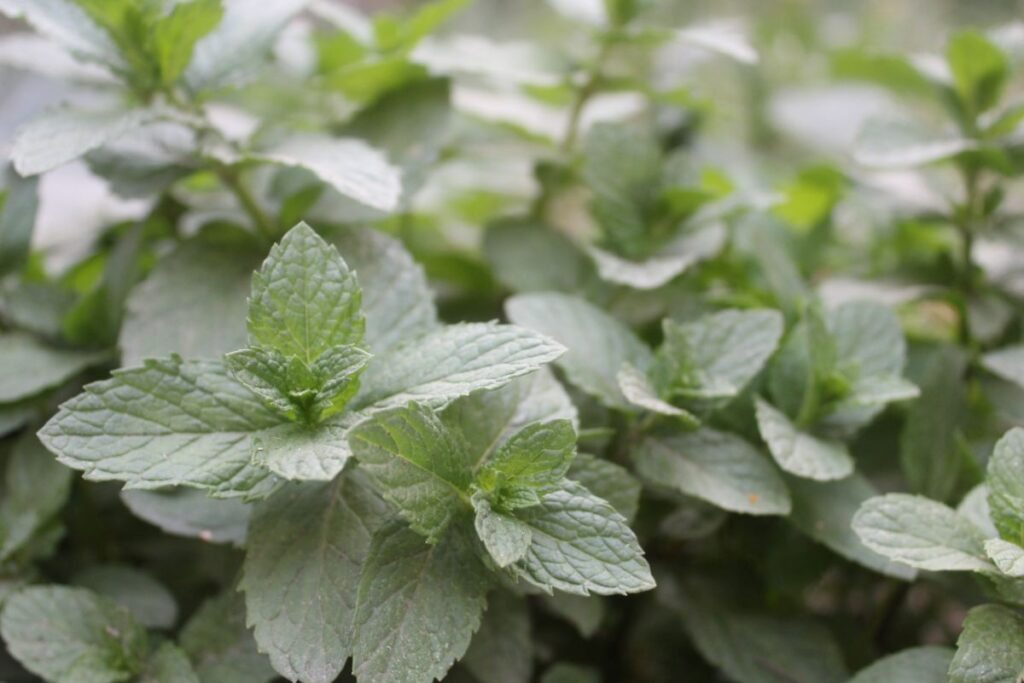
9 Bugs Repelled by Peppermint
Peppermint acts as a powerful and effective repellent against the following bugs and pests:
1. Spiders
Common house spiders like to stay in hidden and undisturbed spaces, such as underneath furniture, below sinks, and inside cardboard boxes. These creepy crawlies are also attracted to moist areas such as crawl spaces, basements, and your garden!
When frightened, spiders can bite in self-defense, causing irritation, redness, or itchiness to humans and pets.
Thankfully, an article from the Journal of Economic Entomology discusses the effectiveness of peppermint oil as a spider repellent.
When exposed to the substance, the experimental spiders displayed a strong negative response to peppermint and ran to avoid it.
2. Ants
As for ants, they prefer living near food sources and in safe nesting spots like the inside of your home’s walls. Your kitchen, bathroom, and pet food bowls are prime targets for ants since they contain plenty of sweets, moisture, and food crumbs.
According to PETA, placing dried peppermint leaves near the cracks of doors, windows, and other openings will repel ants.
In addition to peppermint, the organization recommends coffee grinds, chili pepper, and cinnamon sticks as safe, humane, and natural ant repellents.
3. Mites and Fleas
Mites and fleas can wreak havoc on your home by biting humans, triggering asthma and allergic symptoms, damaging plants, and irritating pets. You’ll find these critters almost everywhere—underneath carpets, in dusty attics, and even in your pet’s bedding.
To keep mites and fleas at bay, you can either plant peppermint in your backyard or use peppermint oil as a handy and effective spray.
When 34 essential oils were compared, peppermint oil showed one of the highest efficacy rates in controlling mite populations.
4. Cockroaches
Auburn University researchers tested the repellency and toxicity of mint oil on American and German cockroaches.
Surprisingly, the results showed that mint oil was 100% repellent to both species during the entire 14-day experiment!
This is big news to people dealing with unpleasant and unsanitary cockroach issues in their homes.
To create your own mint and water solution, simply mix 15 drops of peppermint oil with 10 ounces of water and spray on infested areas.
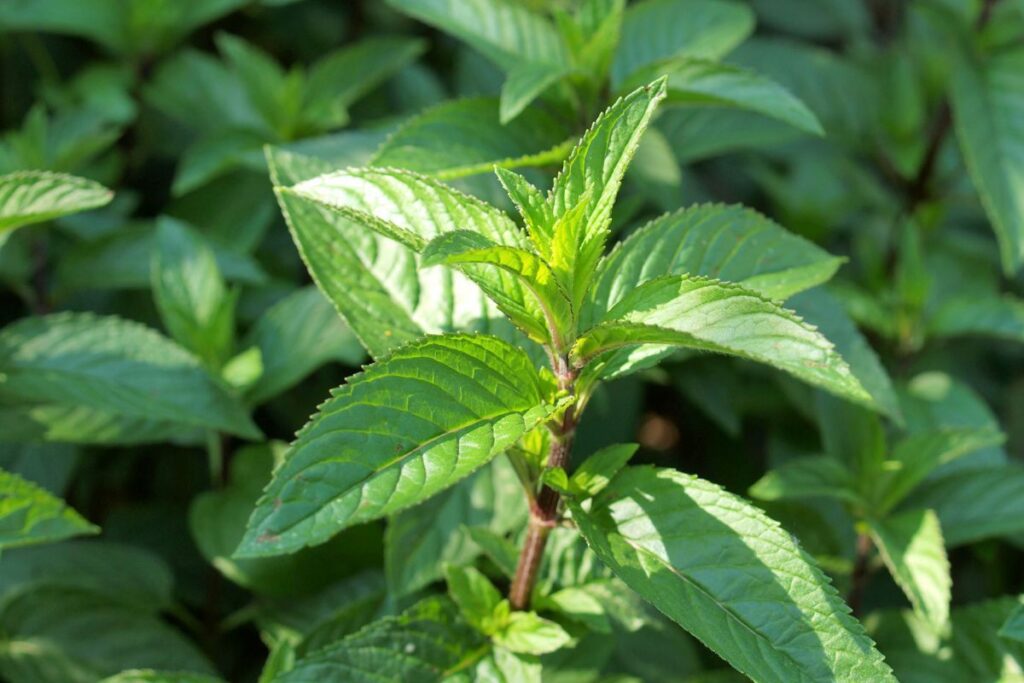
5. Moths and Caterpillars
It’s typical for moths to lay their eggs on plants, and as these eggs hatch into larvae, they begin to eat leaves for sustenance.
Their diet grows as they turn into mature caterpillars, causing them to sometimes feed on your flower petals and spread plant diseases in the process.
Many insects don’t like the smell of peppermint—moths and caterpillars included! This was scientifically proven by investigating the scent reaction of larvae and moths to 18 different oils, with peppermint being one of them.
Additionally, peppermint oil demonstrated a negative effect on the moths’ fertility and decreased egg hatchability, too!
6. Wasps
If you want to keep wasps away from your home, garden, and yard, using mint plants and peppermint oil can be an effective solution.
In an experiment involving predatory social wasps such as yellowjackets and paper wasps, the following essential oils showed a high level of repellency:
- Peppermint
- Spearmint
- Clove
- Lemongrass
- Ylang Ylang
- Anise
- Rosemary
- Lavender
- Citronella
- Thyme
7. Mosquitoes
Mosquito bites are harmful to both humans and animals. In addition to causing skin irritation, bites from these flying insects spread dangerous diseases, including the Zika virus, dengue, and malaria.
Did you know that peppermint oil can provide up to 100% protection from mosquito bites during the first 150 minutes of application?
It serves the dual purpose of efficiently terminating larvae and being an excellent repellent against dengue fever-causing mosquitoes.
8. Bed Bugs
Are bed bugs keeping you up at night? No worries, peppermint oil is a safe, green, and reliable tool with a strong and distinct scent that repels these notorious blood-sucking insects.
Rutgers University researchers studied the efficacy of nine essential oil-based products and two detergents for bed bug control.
They discovered that only two products effectively eliminated more than 90% of bed bug nymphs, and one of them contained peppermint oil.
9. Beetles
Generally speaking, beetles are harmless to humans, but they can damage clothing, crops, wooden structures, and food sources.
These insects are sometimes considered postharvest pests because of their tendency to feed on newly harvested fruit.
Don’t hesitate to use peppermint oil to deter beetles from invading your home. This substance is scientifically proven to be effective in managing the following species of beetles:
- Red flour beetle
- Cigarette beetle
- False powderpost beetle
- Pulse beetle
- Black carpet beetle
- Sawtoothed grain beetle
- Rice weevil
How To Use Peppermint to Repel Bugs and Pests
There’s more than one way to keep critters away with peppermint!
This fast-acting and reliable pest control solution functions effectively when used in the following methods:
| Type of Repellent | Where to Use | Directions |
| Peppermint spray | Furniture, countertops, curtains, and hard-to-reach insect-prone surfaces | Dilute five drops of peppermint oil in a small spray bottle with water and use it on affected areas. |
| Peppermint leaves | Your home’s entry points, including doorways and windowsills | Fill empty sachets with dried peppermint leaves and position them around the house. |
| Cotton balls with peppermint oil | Insect hiding spots, such as floor cracks and dark corners | Dip several cotton balls in peppermint oil and place them in various locations. Replace the balls once a month or as needed. |
| Peppermint plants | Gardens, pathways, and around the yard | Plant peppermint in the garden to repel pests from your flowers and vegetables. |
Wrapping Up
Peppermint is one of the best alternatives to using harsh and harmful pest repellents that contaminate the environment.
Its low cost, wide availability, and aromatic smell make it highly ideal for home and garden use.
Hopefully, you’re now familiar with the 9 bugs repelled by peppermint as well as the ways on how to use this tool to prevent various pests and insects from invading your home. With peppermint, you’re always one spray away from keeping the bugs at bay!
